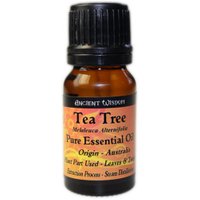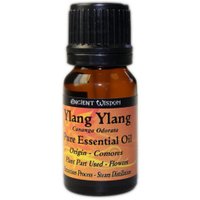VAT Reg No: 317335906
15a St Thomas St
Scarborough
N Yorkshire
YO11 1DY
* Mail Order * Local Delivery * Click and Collect *
Essential Oils: T-Z
Here is the list of our current Essential Oils from T to Z.
If we don't have the one you are looking for, please get in touch and we will try and stock it
In early times, it seems the leaves of this tree were infused to make tea, which is how the name came into being. Tea tree essential oil is the concentrated liquid compounds steam distilled from the leaves of the tree Melaleuca alternifolia, which is native to the northeast coast of New South Wales, Australia. The oil is claimed to have valuable antiseptic and anti-fungal properties due to constituents called terpenoids, and is used in many personal care products and medicines today.
Tea tree oil is said to be good for relieving congestion, cold, cough and flu. It has been used to heal acne, fungal infections, dandruff, vaginal infections, haemorrhoids, athlete's foot, and is believed to soothe aching muscles and joint injuries. When added to bath water it helps control bacteria. Tea tree oil is not to be taken internally. It is usually used only on adults and must be kept away from children and pets. Don't use it if you're pregnant or lactating.
The tea tree has been known for its medicinal properties since ancient times in eastern Australia. The Australian aborigines are known to have been using the crushed leaves to heal cuts, burns, sores, and infections for hundreds of years. They inhaled the oils from the crushed leaves to relieve coughs and colds. They sprinkled this oil on wounds and applied a poultice on it. They infused the leaves and made tea to soothe sore throats. It was between 1920 and 1930 that the essential oil of this tree began to be known and used for its antimicrobial properties in Europe.
Ylang Ylang is a large tree native to the far eastern countries like Malaysia, Philippines, and Indonesia. Its yellow flowers are strongly fragrant and have long trailing petals. The essential oil made from it is available in abundance and is therefore the least expensive but is highly favoured for its fragrance in the perfume and cosmetics industries, and isalso being used in the food industry today.
According to science, ylang-ylang essential oil is a mental stimulant. In contrast, the world of aromatherapy considers this oil one of the best at relaxing the mind and the body. Simply smelling it is supposed to help lower blood pressure. Taking a bath with the oil or using it in a massage oil naturally enhances the relaxation experience. It is used to relieve stress, depression, shock, or anxiety. When used as a hair tonic, it is supposed to balance oil production. Be warned, though, that high concentrations of ylang ylang can cause headaches or nausea.
Ylang Ylang means the flower of flowers in Malay, and was traditionally thought of as an aphrodisiac and a relaxing fragrance, so the flowers of this tree were strewn on the marriage bed of a newly married couple in Indonesia. Muslim women used to burn this oil to scent their harems, the part of the palace reserved for women. In China, the fragrance was used to purify the robes of the mandarin. Ylang Ylang essential oil has been associated with perfumes and relaxation for a long time.


